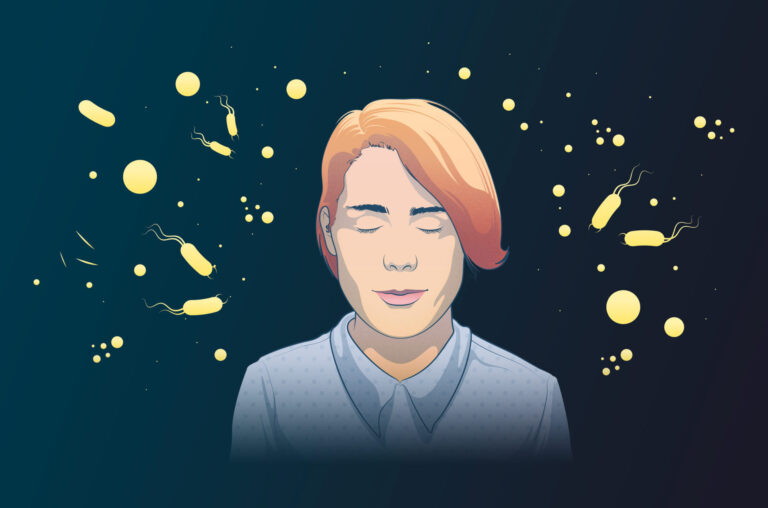Intimacy and the Mind: Nurturing Mental Well-Being for Better Sex

The Importance of Body Image: Embracing Self-Acceptance and Body Positivity for Improved Intimacy

Body image plays a significant role in our overall self-acceptance and confidence, and it can greatly impact our intimate relationships. When we embrace self-acceptance and body positivity, we cultivate a healthier mindset towards our physical appearance, which in turn enhances our ability to engage intimately with our partners. It’s important to understand that body image is not solely about how we look, but also about how we feel about our bodies.
Research has shown that individuals who have a positive body image tend to have better sexual satisfaction and increased intimacy in their relationships. When we feel comfortable and accepting of our bodies, we are more likely to engage in intimate moments without feeling self-conscious or insecure. This allows us to focus on the pleasure and connection rather than getting caught up in negative thoughts about our appearance.
Moreover, embracing self-acceptance and body positivity can also encourage open communication with our partners about our desires and preferences. When we are confident in ourselves, we are more likely to express our needs and expectations, creating a safe and fulfilling space for both partners to explore their desires.
Body image is a multidimensional concept that encompasses more than just physical appearance. It encompasses our attitudes, beliefs, and feelings towards our bodies. By embracing self-acceptance and body positivity, we can nurture a healthier relationship with our bodies, enhancing our intimacy and overall well-being.
Exploring Sexual Desire: Understanding the Influence of Psychological Factors on Sexual Arousal

Sexual arousal is a complex and multifaceted phenomenon that can be influenced by various psychological factors. Understanding these factors is crucial in unraveling the intricacies of sexual desire and in helping individuals navigate their own experiences of arousal. One important psychological factor that plays a significant role in sexual arousal is self-esteem.
Research has consistently shown that individuals with higher levels of self-esteem tend to have a more positive perception of their own sexuality and are more likely to experience higher levels of sexual desire and arousal. On the other hand, individuals with low self-esteem may struggle with feelings of inadequacy or shame, which can negatively impact their sexual desire. It is therefore essential to address and promote positive self-esteem as a means of supporting and enhancing sexual arousal.
Another psychological factor that can influence sexual arousal is stress. The demands of modern life, such as work pressures, financial worries, and relationship conflicts, can all contribute to increased stress levels. And when stress becomes chronic or overwhelming, it can significantly dampen sexual desire and arousal. This is because stress triggers the release of cortisol, a hormone that inhibits the production of testosterone, a key hormone involved in sexual arousal. Therefore, managing and reducing stress through various techniques, such as mindfulness, relaxation exercises, and therapy, can be beneficial in enhancing sexual desire and arousal.
In conclusion, exploring the influence of psychological factors on sexual arousal is vital in understanding and addressing issues related to sexual desire. Self-esteem and stress are just two of the many psychological factors that can impact sexual arousal. By recognizing and addressing these factors, individuals can work towards improving their sexual experiences and overall well-being.
Cognitive factors affecting sexual arousal

Sexual arousal, a dynamic and intricate aspect of human experience, is not solely confined to physical stimuli. The realm of cognitive factors influencing sexual arousal delves into the mind’s labyrinth, where fantasies, emotions, and thoughts converge to shape the rich tapestry of desire. This article explores in detail the cognitive factors that contribute to the complex interplay between the mind and sexual arousal.
- Imagination and Fantasy: The Mind’s Playground. Sexual arousal often finds its roots in the boundless realm of imagination. The mind’s ability to conjure vivid and arousing fantasies plays a pivotal role in the cognitive aspect of desire. Whether rooted in personal experiences, desires, or creative imagination, fantasies engage the cognitive processes that amplify arousal. Understanding the nuances of how imagination shapes sexual desire provides insights into the diversity and individuality of human arousal patterns.
- Mood and Emotions: The Emotional Canvas. Emotions act as both architects and disruptors in the realm of sexual arousal. Positive emotions, such as joy, excitement, and love, can amplify desire, while negative emotions, like stress or anxiety, may act as inhibitors. The interplay between mood and sexual arousal highlights the emotional intricacies that can either facilitate or impede the path to intimacy. Exploring the emotional landscape provides a holistic view of how mood influences cognitive processes tied to sexual response.
- Cognitive Scripts and Sexual Schema: Unraveling Mental Blueprints. Cognitive scripts, internalized patterns of thought and behavior related to sexuality, and sexual schemas, mental frameworks for processing sexual information, significantly influence sexual arousal. These mental blueprints are shaped by cultural, social, and personal experiences, contributing to the formation of sexual preferences and responses. A detailed examination of these cognitive structures unveils the profound impact they have on the interpretation and anticipation of sexual stimuli.
- Mindfulness and Present-Moment Awareness: The Power of Presence. Mindfulness, the practice of being fully present in the moment without judgment, has been increasingly recognized as a factor influencing sexual arousal. Being attuned to the sensations and experiences in the present moment enhances the cognitive connection to sexual stimuli. Investigating the role of mindfulness in sexual experiences sheds light on how cultivating awareness can enrich the cognitive aspects of desire and pleasure.
- Cognitive Distortions and Sexual Dysfunction: Breaking Down Barriers. Cognitive distortions, irrational and negative thought patterns, can contribute to sexual dysfunction. Examining how cognitive distortions, such as performance anxiety or negative self-perception, impact sexual arousal offers valuable insights for addressing challenges in sexual well-being. Strategies focused on cognitive restructuring and re-framing can be explored to alleviate cognitive barriers to arousal.
Intimacy and Mental Health: Recognizing the Interplay between Mental Well-Being and Sexual Satisfaction

The intersection between intimacy and mental health has been a topic of increasing interest and research in recent years. Recognizing the interplay between mental well-being and sexual satisfaction is crucial for promoting a healthy and fulfilling intimate relationship. Studies have consistently shown that mental health issues, such as depression, anxiety, and stress, can significantly impact an individual’s sexual desire, arousal, and overall satisfaction.
One key aspect to consider is the role of psychological factors in shaping sexual experiences. Negative body image, low self-esteem, and distorted perceptions of attractiveness can all contribute to sexual dissatisfaction and reduced intimacy. Research indicates that individuals who have a positive body image and high self-acceptance tend to experience greater sexual satisfaction and enjoyment. On the other hand, body dissatisfaction and self-critical thoughts can lead to feelings of shame, embarrassment, and decreased sexual desire. Therefore, fostering self-acceptance and embracing body positivity are essential for enhancing intimacy and sexual well-being.
methods to nurturing Mental Well-Being for Better Sex
Optimal mental well-being is closely intertwined with sexual health and satisfaction. When individuals prioritize their mental health, they often find that it positively influences their sexual experiences. Here are several methods to nurture mental well-being for better sex:
1. Practice Mindfulness and Relaxation Techniques:
- Engage in mindfulness meditation or deep breathing exercises to reduce stress and anxiety.
- Relaxation techniques can help calm the mind and create a conducive mental environment for intimacy.
2. Prioritize Self-Care:
- Ensure adequate sleep, exercise, and a balanced diet to support overall well-being.
- Pamper yourself with activities you enjoy, such as reading, listening to music, or taking a warm bath.
3. Open Communication with Partners:
- Establish open and honest communication with your partner about desires, concerns, and boundaries.
- Discussing expectations and understanding each other’s needs fosters emotional intimacy, positively impacting sexual well-being.
4. Set Realistic Expectations:
- Avoid unrealistic expectations about performance or appearance, which can contribute to anxiety.
- Embrace the natural ebb and flow of sexual experiences, acknowledging that not every encounter needs to meet perfection.
5. Cultivate Positive Body Image:
- Focus on self-love and acceptance, appreciating your body for its uniqueness.
- Challenge negative thoughts about your body and recognize that beauty comes in diverse forms.
6. Explore Erotica and Sexual Education:
- Read literature or explore educational resources about sexuality to enhance knowledge and reduce feelings of uncertainty.
- Understanding your own body and sexual response can contribute to increased confidence and satisfaction.
7. Manage Stress:
- Identify stressors in your life and develop coping mechanisms such as exercise, mindfulness, or seeking support from friends or professionals.
- Chronic stress can negatively impact libido and sexual function, making stress management crucial for mental well-being.
8. Engage in Regular Physical Activity:
- Exercise releases endorphins, which are natural mood enhancers.
- Regular physical activity can improve body image, boost self-esteem, and contribute to a positive mental state.
9. Seek Professional Support:
- If mental health issues are impacting your well-being, consider seeking therapy or counseling.
- Professionals can provide guidance and support for addressing anxiety, depression, or other mental health concerns that may affect sexual satisfaction.
10. Practice Safe Sex:
- Reducing the risk of sexually transmitted infections and unintended pregnancies can contribute to peace of mind.
- Knowing that you are taking measures to protect your sexual health can positively impact your mental well-being.
11. Embrace Positive Sexual Attitudes:
- Challenge societal stigmas and judgments surrounding sexuality.
- Cultivate a positive and healthy attitude towards sex, recognizing it as a natural and essential aspect of human life.
Remember, mental well-being is a holistic concept that involves various aspects of life. By prioritizing mental health, individuals can create a foundation for satisfying and fulfilling sexual experiences. If persistent challenges arise, seeking the guidance of a healthcare professional or a qualified therapist can provide personalized support.
Optimal mental well-being is closely intertwined with sexual health and satisfaction. When individuals prioritize their mental health, they often find that it positively influences their sexual experiences. Here are several methods to nurture mental well-being for better sex:
How does body image affect intimacy?
Body image can play a significant role in intimacy. When individuals have a positive body image and embrace self-acceptance, they tend to feel more confident and comfortable during intimate moments, which can enhance the overall experience.
Can mental health issues impact sexual desire?
Yes, mental health issues can have an impact on sexual desire. Conditions such as depression, anxiety, and stress can decrease libido and make individuals less interested in sexual activities.
How does mental well-being influence sexual satisfaction?
Mental well-being is closely linked to sexual satisfaction. When individuals have good mental health, they are more likely to have positive feelings, emotional intimacy, and a sense of connection during sexual encounters, ultimately leading to higher levels of sexual satisfaction.
Are there any psychological factors that affect sexual arousal?
Yes, there are several psychological factors that influence sexual arousal. These may include stress, anxiety, body image issues, past traumas, relationship conflicts, and self-esteem. These factors can either enhance or inhibit sexual arousal.
Can improving mental health lead to better sexual satisfaction?
Yes, improving mental health can positively impact sexual satisfaction. By addressing and managing mental health concerns, individuals can experience reduced stress and anxiety, improved self-esteem, increased emotional connection, and enhanced overall well-being, all of which can contribute to better sexual satisfaction.
How can self-acceptance and body positivity improve intimacy?
Self-acceptance and body positivity can improve intimacy by promoting self-confidence and acceptance of one’s body. When individuals feel comfortable and positive about their bodies, they are more likely to engage in intimate activities without insecurities, leading to a more fulfilling and enjoyable experience.
Can mental health issues be a barrier to intimacy?
Yes, mental health issues can act as a barrier to intimacy. Conditions like depression, anxiety, or post-traumatic stress disorder can affect the emotional and physical connection between partners, leading to difficulties in intimacy and sexual satisfaction.
What can be done to address psychological factors affecting sexual arousal?
Addressing psychological factors affecting sexual arousal may involve seeking therapy or counseling to address underlying issues such as stress, anxiety, or past traumas. Open communication with a partner, practicing relaxation techniques, and exploring mindfulness can also be beneficial in managing these factors.
How can couples prioritize both mental health and sexual satisfaction?
Couples can prioritize both mental health and sexual satisfaction by fostering open and honest communication, supporting each other’s mental well-being, seeking professional help if needed, and exploring ways to enhance emotional intimacy and connection during sexual encounters.
Is it common for mental health professionals to address sexual satisfaction in therapy?
Yes, it is common for mental health professionals to address sexual satisfaction in therapy. Many therapists are trained in addressing the interplay between mental health and intimacy, and they can provide guidance and support in improving both aspects of individuals’ lives.






